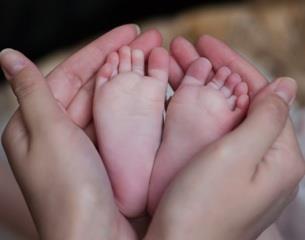The Court of Justice of the European Union (CJEU) has ruled that working mothers who have children by way of a surrogate are not entitled to maternity rights.

The judgement resolves two earlier conflicting opinions from the Advocate General on the matter in the cases of Z v A Government Department and the Board of Management of a Community School and CD v ST.
In the first case, a former employee had a child via surrogacy for physical reasons and wished to take paid leave. Her employer only offered unpaid leave and the employee brought claims for sex discrimination.
At the tribunal, the Advocate General concluded the Pregnant Workers Directive only protects women who give birth.
In the second case, CD v ST, the claimant unsuccessfully applied for paid time off from her NHS employer after her baby was born via surrogacy. Although she did not give birth, she breastfed from the time the child was born. A few months after the birth, the claimant and her partner were granted a parental order.
In this case, the Advocate General concluded that the special relationship which exists between a woman and her child over the period following pregnancy and childbirth should be protected in the same way for those who have a child via surrogacy as for biological mothers.
The tribunal referred the case to the CJEU to decide whether EU maternity and discrimination law covers an intended mother.
The CJEU has now ruled that only employees who have been pregnant and have given birth are entitled to maternity leave under the Pregnant Workers Directive.
It found that breastfeeding is not sufficient in itself to entitle a woman to protection under the directive.
It also ruled that it is not direct sex discrimination to refuse the intended mother maternity leave in circumstances where the intended father would have no such entitlement.
Vanessa Hogan, of counsel in Hogan Lovells’ employment team, said: “Advances in medical technology in recent years have made surrogacy arrangements more common.
“These decisions show that laws that were drafted two decades ago do not cater for such advances.
“The good news for families in this situation is that changes introduced by the Children and Families Act will make it easier in future for the intended parents in a surrogacy arrangement to access adoption leave and pay and shared parental leave and pay.
“It will therefore be possible for either or both intended parents to take leave around the time of a child’s birth.”
Emma Burrows, head of employment at law firm Trowers and Hamlins, added: “The CJEU’s decision will only have a limited impact as changes to surrogacy arrangements are already on the cards.”











